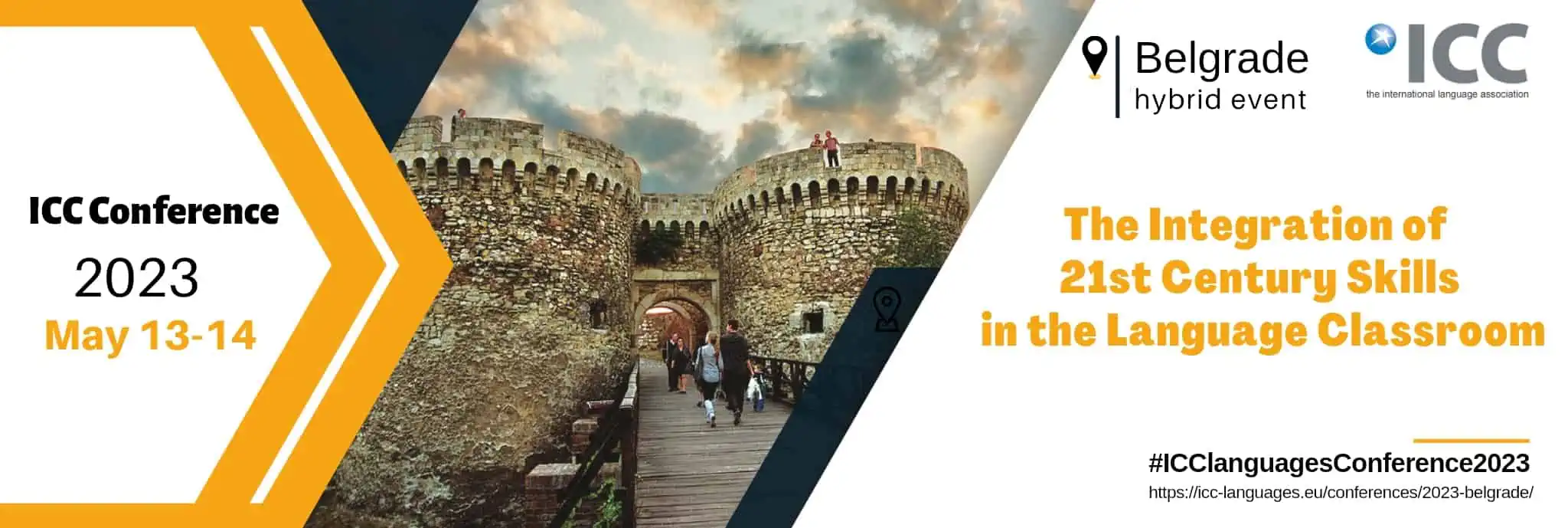Panel Discussion: ChatGPT – A Revolution of Language Teaching and Learning or Just a Hype?
Moderator: Thomas Tinnefeld (Germany)
Panelists: Aleksandra Skoko Despenic (Serbia), Oonagh McGirr (UK), Nikolay Slavkov (Canada)
Abstract
Language learning is a complex process that requires significant time, effort, and resources. With the emergence of ChatGPT, a language model based on artificial intelligence, there is a growing debate among educators and language teachers about whether it represents a true revolution in language teaching and learning or is merely a passing fad.
On the one hand, ChatGPT has the potential to transform language learning by providing learners with real-time feedback and personalised language practice, regardless of their location or time zone. It can also act as a native speaker-like communication partner, providing access to a wide range of authentic language materials and improving language skills at learners’ own pace.
On the other hand, some argue that ChatGPT may not be suitable for all learners, especially those who require face-to-face interaction, feedback, and correction. They also question the accuracy and reliability of the model’s output, which may contain errors or inaccuracies that can lead to confusion or misunderstandings.
During this panel discussion, we will explore these and other questions related to the use of ChatGPT in language teaching and learning. We will hear from experts in the field who will share their experiences and insights on this topic.
Bio
Thomas Tinnefeld is a Full Professor of Applied Languages at Saarland University of Applied Sciences in Germany. Additionally, he serves as the President of the Language Council of Saarland (Germany).
Thomas is the founder and chairman of the biennial Saarbrücken International Conferences on Foreign Language Teaching and the editor of the Saarbrücken Series on Linguistics and Language Methodology (SSLLM). He is also the editor of the Journal of Linguistics and Language Teaching. Thomas publishes widely in the field of English, French, German and Spanish linguistics and methodology. His research interests cover applied linguistics and language methodology, especially languages for specific purposes, grammar and grammaticography, writing research, and interculturality.
Oonagh McGirr has held leadership roles in a variety of locations and institutions. Her career in post-compulsory education spans developing teacher training for international Higher Education, leading a widening participation initiative for a public-private regeneration centre of excellence, heading a Modern Languages department at a post ‘92 University, and holding the inaugural Teaching and Learning Excellence Coordinator role at Central Saint Martins College of Art and Design in the UK. Subsequently, Oonagh established the Teaching and Learning Development Unit at Bahrain Polytechnic prior to completing a four and a half year tenure as the Deputy Chief Executive of Learning and Teaching Services at Otago Polytechnic- Te Kura Matatini Ki Otago in Aotearoa-New Zealand. She currently leads the University of Northampton International College in the UK. She recently completed a secondment to the NZ government advising on HE innovation and delivery for the national Reform of Vocational Education and worked with Ireland’s first Embassy in NZ to advise on Asia-Pacific-Ireland tertiary education collaboration. Oonagh has presented her work internationally, co-chairing tertiary sector conferences in New Zealand, the UK and the Middle East, delivering Keynote addresses and sharing practice. She has edited and contributed to publications on leading institutional capability building, lifelong learning teacher development and international teacher mobility. Her current research focuses on leadership and authenticity of practice in uncertain times.
Aleksandra Skoko Despenic is the Head of Software Development and Statistical Research Support at the Statistical Office of the Republic of Serbia. She is responsible for the development of an integrated system of databases and AI in order to enable quick and efficient processing of huge amounts of data, allowing AI and machine learning intelligence to solve complex problems. Her extensive experience in data management includes, among others, the Statistical Office of the Republic of Srpska, the Statistical Office of Montenegro, the Statistical Office of Vietnam, and the Statistical Office of Namibia. She is a member of the UNECE international team for the modernization of statistics. Her specialties are database management, data protection, AI, machine learning, and innovations in these fields.
Nikolay Slavkov is Associate Professor and Director of the Canadian Centre for Research and Studies in Bilingualism and Language Planning (CCERBAL) at the Official Languages and Bilingualism Institute (OLBI) of the University of Ottawa. Prof. Slavkov’s research contributions include keynote addresses, edited volumes, journal articles, and book chapters on language pedagogy and innovation, child language development, family language policy, technology, bilingualism, multilingualism, and (Slavic) linguistics. His work has appeared in the AILA Review, Canadian Modern Language Review, International Journal of Multilingualism, International Journal of Bilingual Education and Bilingualism, Foreign Language Annals, Second Language Research, Immersion Journal, Canadian Journal of Applied Linguistics, TESL Canada, Lingua, and Journal of Slavic Linguistics. He has taught in Canada, the United States, China, and Bulgaria.


